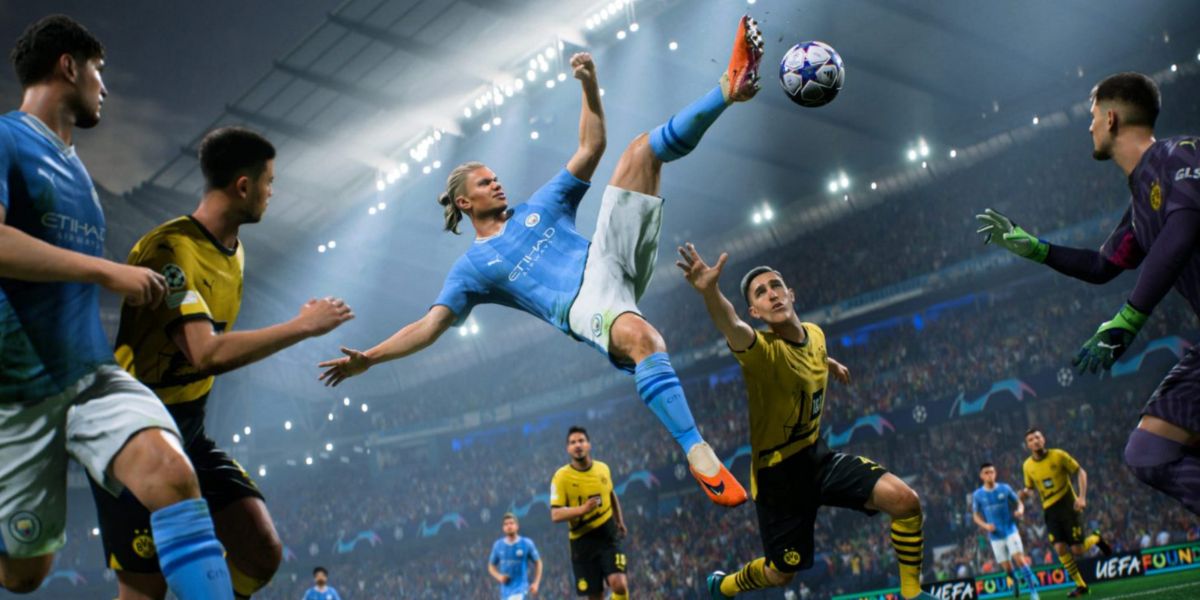Why EAFC 24 Ultimate Team is Likened to Gambling

EA Sports FC 24 Ultimate Team has become wildly popular since its implementation into the beloved FIFA Video Game franchise back in 2009. It has gone on to far surpass EA Sports' greatest expectations and become the primary money maker for Canadian game producers. Even the rebranding of the soccer simulation franchise to EA Sports FC couldn't slow it down, and it remains a money spinner for all involved.
UT allows players to build their dream teams by acquiring player cards through packs, trading, and match performance. However, it has grabbed headlines for many reasons, including the debate it has sparked over its similarities to gambling. So, why do people make the connection?
How It Works
Central to Ultimate Team is the collection of player cards. Players have multiple ways to acquire cards: they can buy them directly from the in-game store using the game's currency—earned through playing or purchased with real money—trade with other players or complete specific in-game challenges. The most prominent method is purchasing "packs," which offer a random selection of cards.
It's a system that bears a striking resemblance to the bucketload casino games, where punters experience immediate feedback and potential rewards. Of course, this isn't always a bad thing. Enjoyed responsibly, playing casino games can be one of the best ways to unwind, and the same can be said of Ultimate Team. But with that being said, it's clear where the distinction has come from.
A significant aspect of these packs is that the contents remain unknown until purchased and opened, akin to opening a loot box. Gamers invest real money hoping to obtain rare and valuable cards that can strengthen their starting eleven. This uncertainty and the thrill of potentially obtaining someone of high value can drive repeated purchases, creating an immersive cycle.
Impact on Players
FUT's design incorporates several principles to ensure players remain consistently engaged. A notable example is the "variable ratio reinforcement" method, where rewards are distributed at random intervals. This reward system resembles the unpredictability of slot machines in a casino, embodying entertainment and sustaining prolonged player involvement.
Another psychological element is the "fear of missing out," or FOMO as the kids say. EA Sports often introduces limited-time events and special packs that offer exclusive or rare items. FUT Birthday, Black Friday and Team of the Year are all exciting times to be a gamer on the planet's most beloved sports game, both from the perspective of the end-user and the company itself.
Spending
The financial implications of engaging heavily in the game can vary. Some players may spend significant sums on packs in pursuit of rare cards, while others may approach it more conservatively - perhaps not even making a real-money purchase at all. Unlike traditional video games where a one-time purchase grants access to all content, EA FC employs a monetization strategy that encourages ongoing spending. This is why the mode has become the primary money maker for Vancouver-based EA Sports and why the entire gaming industry has followed suit.
Nowadays, games such as Call of Duty have both followed in kind. Both games allow users to make in-game purchases with real money for items that are unknown at the point of purchase. All that is known is the probability of securing a "rare" item. And they aren't the only ones.
But it isn't just here in which the worlds of gambling and gaming have collided.
Esports Betting
Esports has rapidly gained traction as a popular form of entertainment in recent years, and not just for gamers. Fans now watch all the best action unfold on streaming platforms such as Twitch and YouTube, and they are even able to bet on it. Traditional sites are now providing being on competitive gaming, with Bovada esport betting odds proving to be a popular choice with punters.
The website has plenty of options available, with games such as Call of Duty and League of Legends both featuring heavily. They even have futures betting on both, making Atlanta Faze a +150 betting favorite for the CoD: CDL competition and Gen G a +120 favorite for the LoL: LCK Summer tournament. And it isn't just outright betting that speculators can place their hard-earned cash down on.
When it comes to having a dabble on Esports, there is a huge diversity of betting markets available. Unlike traditional sports, where bets are typically placed on outcomes like match winners or point spreads, esports offers a wide array of betting options. One can wager on specifics such as first blood in a game, total kills, or even the duration of a match on an under/over line. This variety allows for more strategic and informed betting, as enthusiasts can use their knowledge of the game and the players to make educated guesses about in-game events, and hopefully turn that knowledge into a pot of cash.
Another key factor driving the growth of Esports gambling is the increasing legitimacy and visibility of the 'sport' itself. Major tournaments, such as The International for Dota 2 and the League of Legends World Championship, attract millions of viewers worldwide. The high-stakes nature of these competitions adds an extra layer of excitement for bettors, who can now immerse themselves in the fast-paced world of esports.
Please note that some links in this article may be sponsored or contain affiliate content.